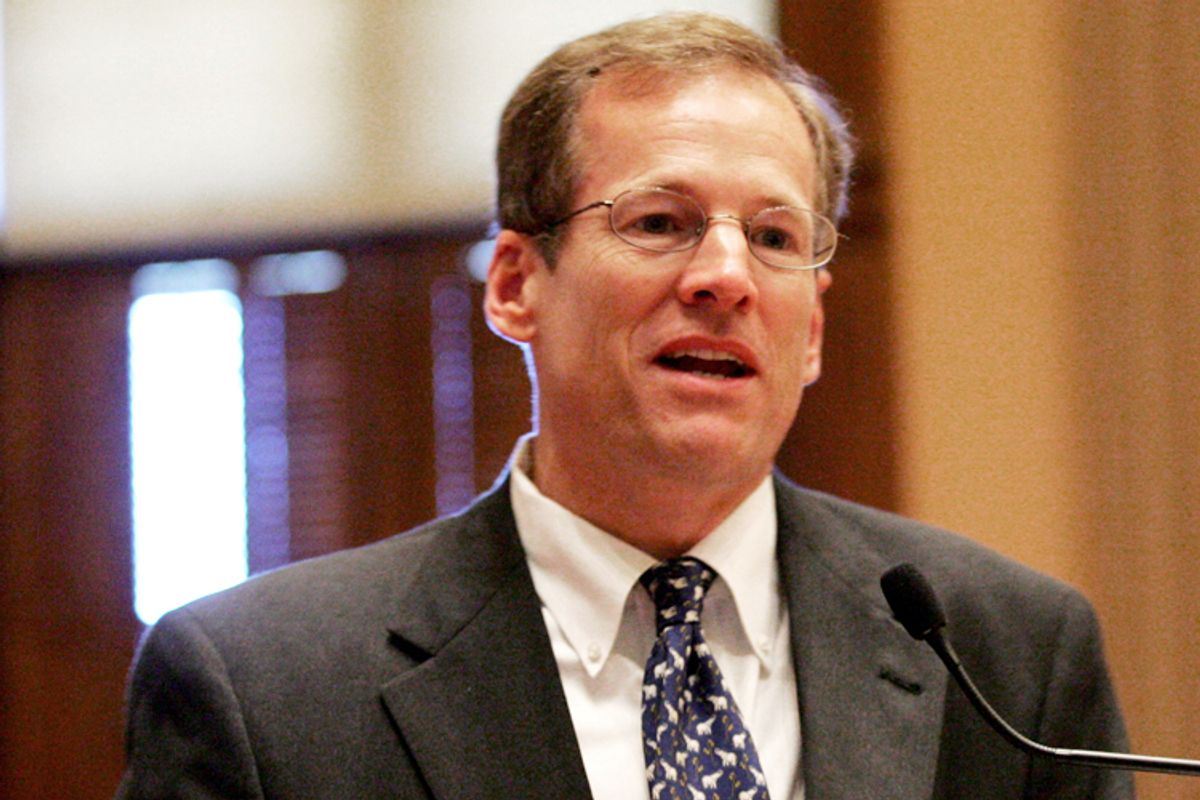Voters headed to the polls yesterday in Georgia and several other states to pick who they want to represent their party in November’s midterm elections. And when it comes to Georgia, at least, all anyone’s been able to talk about for the past couple of days has been Democratic Senate candidate Michelle Nunn’s voting record.
It’s a curious conversation, as Nunn has never actually held elected office and, as such, has never actually voted for any legislation. What journalists are trying to nail down is whether Nunn would have voted for the Affordable Care Act had she been in the Senate in 2010.
One would assume that the answer is yes. Nunn defends portions of the law, and every Southern Democrat voted for the bill. There’s little reason to think a Georgia Democrat would have voted any differently (Zell Miller excluded). But Nunn is being cagey about her answer, responding to queries with forward-looking, tempered support for the law as it is, swaddled in a protective sheath of talking points. Republicans and conservatives are making hay of Nunn’s evasiveness on the question, and that in turn is feeding more coverage of Nunn “struggling” with Obamacare.
In some ways it’s a foolish exercise. Nunn is being asked to invent and defend a voting record she doesn’t actually have. Of course, were the ACA’s favorability numbers not so terrible, she’d probably be more eager to cast an imaginary vote.
Either way, the focus has been entirely on Nunn and her inability to grapple with Obamacare’s past. Meanwhile, the Republican primary focused largely on the Affordable Care Act’s future – or lack thereof. In Georgia, the “full repeal” mantra was a common thread uniting the Republican candidates, as was the determined unwillingness to explain what policy, if any, they would put in Obamacare’s place.
The Georgia GOP field was a crowded mess that resulted in no candidate reaching the 50 percent threshold to avoid a runoff (businessman David Perdue and Rep. Jack Kingston will face off in July). In March, the Healthcare Georgia Foundation asked each candidate what he or she would do to “address the problem of 48 million Americans without health insurance.” I’ll focus on who were the three leading candidates on the GOP side: Perdue, Kingston and Karen Handel.
Perdue, the former CEO of Reebok, wants to “repeal Obamacare and replace it with more affordable free market solutions,” according to his website. He told the Healthcare Georgia Foundation that he’d look at “state high risk pools or examining the federal insurance pool to spread the risk.” To lower insurance costs, he prescribed “removing some of the regulatory burdens on providers.” He also supports Health Savings Accounts.
Jack Kingston, who represents Georgia’s 1st District in the House, also wants to repeal Obamacare, but not before forcing President Obama to sign up for it. As for what he’d put in its place, Kingston wants “market-based solutions that expand access to affordable and patient-centered health plans that meet the needs of individuals and families.” He, too, supports Health Savings Accounts.
Karen Handel, formerly Georgia’s secretary of state, does actually have a preferred legislative replacement for the Affordable Care Act. She supports a bill by Rep. Tom Price, R-Ga., that she says will usher in “commonsense, market driven, patient-centered reform.” Unfortunately for Handel she’s one of the few people who actually supports Price’s bill. It calls for high-risk pools, tort reform and tax credits, but doesn’t put in place any enforcement mechanisms or regulations to keep costs down and insurers honest. In other words, it won’t work. Also: It would probably blow up the deficit. It’s been introduced several times in the Republican-controlled House and never once received a vote.
That was the state of the Republican field in Georgia’s Senate race. All three viable candidates wanted to repeal Obamacare. Two wanted to replace it with vacant talking points about free-market reforms, and one enthusiastically supported a bill that won’t work and gets no respect from the House Republican leadership. Perdue and Kingston will take those empty positions into the runoff.
I get that journalists want to nail down Nunn’s position on Obamacare because the “Dems in Disarray” narrative is always fun and we all decided long ago that Obamacare would be an unqualified disaster for the president’s party. But the question of whether Nunn would have voted for the bill is largely academic. The question of what her Republican challengers propose to put in Obamcare’s place after they reduce it to cinders informs how they’d actually represent the state. And as Greg Sargent noted, it’s not just the Georgia Republicans who can’t articulate their post-repeal plans. GOP Senate candidates in contested races across the country are clamming up when asked what comes next.
Washington Monthly’s Ed Kilgore put it succinctly. “I guess the real question is whether it’s more important to find out what candidates would have done in 2010, or what they want to do now.”



Shares